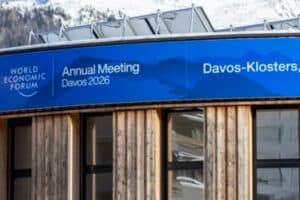Deputy Minister David Masondo also warned that trade fragmentation will have a severe impact on low-income countries.

The Deputy Minister of Finance, David Masondo, emphasised that low-income countries will be significantly impacted by geopolitical tensions, which threaten the country’s growth and financial stability.
Masondo was speaking at the SAi20 Summit on Tuesday in Johannesburg. Sai20 is a group of Supreme Audit Institutions (SAIs) from different countries that make up the G20.
He also noted that supreme audit institutions play a crucial role in auditing the government.
“They are therefore a key enabler of their countries’ abilities to deliver on their infrastructure development goals, in the same way that our own supreme audit institution, the Auditor-General of South Africa, plays the key role that it does in enabling us to realise our infrastructure development aspirations.”
ALSO READ: GGT2030 Team JHB cleans up Main Street ahead of G20 Summit
Low-income countries to suffer
He added that the impact of geopolitical tensions was acknowledged by the G20 Finance Ministers during their discussions. Masondo said trade fragmentation will severely impact low-income countries.
Trade fragmentation refers to a supply chain that is broken up into different parts. For example, when companies spread the production process across different suppliers and manufacturers when they fragment.
Rebuilding and maintaining infrastructure are among the focus areas for the SAi20.
“Infrastructure is a key enabler of economic development and employment creation and delivering services to citizens,” he said.
Private sector role
Masondo said they also aim to attract more private sector investment, as their role could help grow the economy in areas such as electricity, freight logistics, telecommunications and water.
“Given the constrained fiscal constraints and the State-Owned Enterprises’ (SOEs) balance sheets, we need to mobilise private capital to finance the infrastructure.”
During his address, he highlighted the role played by auditors in countries. He said audits contribute towards the ability to raise funding from development financial institutions, private sector funders and other organisations.
“Investors rely on the audit reports produced by the supreme audit institutions.”
ALSO READ: Decisive intervention needed for municipal performance — BLSA
The role of audit reports on countries
He added that the audit reports help examine the controls needed to ensure the efficient and effective deployment of resources for the infrastructure delivery programmes.
“The supreme audit institution enhances our ability to exercise oversight on the nature, quality, and diligence of our infrastructure maintenance.”
He said the audit reports are essential in ensuring that the infrastructure investment delivers value for money, reduces risks of cost overruns and corruption, and accelerates progress toward the Sustainable Development Goals.
The countries have set three Sustainable Development Goals: building resilient infrastructure, promoting inclusive and sustainable industrialisation, and fostering innovation.
Skills development
Masondo said that education is critical for economic growth, and SAI plays a crucial role in education and skills development.
“Based on their audits, they are able to help pinpoint areas that need to be strengthened in the overall system of skills development and transition into meeting industry demands.”
He highlighted that through the work of the Auditor-General of South Africa (AGSA), the country has gained insight into how its policies on skills development and education translate into action and outcomes in the lived reality of citizens.
“We have an enhanced ability to exercise oversight on the various aspects of our service delivery efforts – being able to be specific in our inquiries and interventions, particularly with respect to the manner in which resources are being deployed and the extent to which they are generating the desired outcomes.”
NOW READ: SA economy expected to improve in 2025, but geopolitical risks remain






